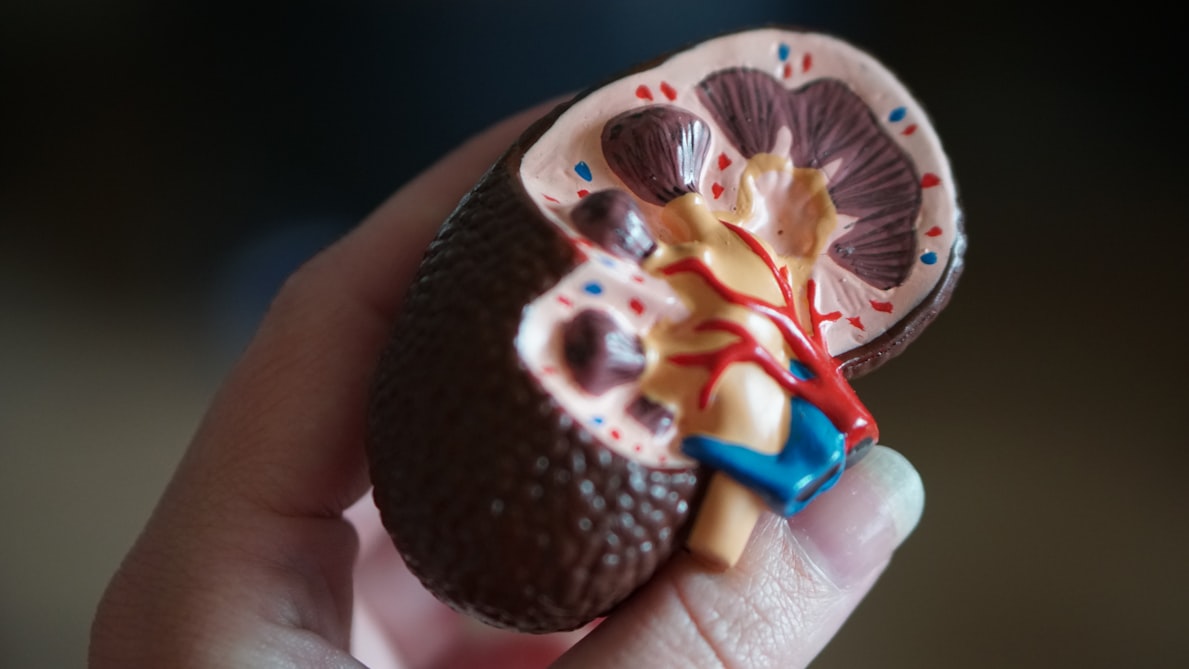Can CBD help with kidney disease, and if so, how?
Kidney failure, also called renal failure or end-stage renal disease, is the last stage of chronic kidney disease.
When the kidneys fail, it means they have stopped working well enough for the person to survive without dialysis or a kidney transplant(1).
However, even these remedies are not without adverse side effects. For instance, researchers found an increased incidence of kidney stones in patients after a kidney transplant.
Calcium based stones, such as calcium oxalate and calcium phosphate, were the most common types of kidney stones found after kidney transplantation(2).
Meanwhile, studies have examined the use of nonsteroidal anti-inflammatory drugs (NSAIDs) for chronic kidney disease (CKD)(3).
Findings suggested that short-term NSAID use has adverse side effects on blood pressure elevation(4).
High blood pressure is the second principal cause of kidney failure in the United States after diabetes(5).
CBD for Kidney Disease: What the Research Says
There are no studies specific to the use of CBD alone and its impact on kidney health. There are, however, limited studies that examined the effects of cannabis on kidneys, and they produced mixed results.
During the American Society of Nephrology’s Kidney Week conference in October 2018, researchers shared their findings from a recent study on medical marijuana use and its side effects on kidneys(6).
Marijuana and hemp belong to the same plant species, Cannabis sativa, but are widely different. Marijuana contains much more tetrahydrocannabinol (THC) than hemp, while hemp contains more cannabidiol (CBD).
The researchers, who studied kidney disease progression in cannabis users, found that chronic kidney disease (CKD) patients’ kidney function declined faster in those who used cannabis, compared to those who did not(7). They did not report whether this was marijuana or hemp-derived cannabis which would have lower THC than CBD.
Joshua L. Rein, DO, who led the study, warned that kidney patients using cannabis should be aware of potential symptoms, such as nausea, lack of appetite, and chronic pain, which are all valid issues for medical marijuana usage(8).
Meanwhile, researchers of a study published in the Journal of Pain and Symptom Management believe that even minor improvements in patients with difficult-to-treat CKD symptoms may be clinically meaningful(9).
In their research, they found that cannabinoids, like CBD and THC, may present a reasonable alternative to pain and symptom management.
Another study, which was published in the Journal of Pharmacology and Experimental Therapeutics, showed that CBD might help reduce nephrotoxicity by decreasing oxidative stress, inflammation, and cell death(10).
Nephrotoxicity occurs when the body is exposed to a drug or toxin that causes kidney damage, which makes the body unable to eliminate excess urine and wastes.
Still, due to limited treatment options for chronic kidney disease (CKD), symptom management can be challenging.
Thus, therapeutic alternatives are in high demand, which may explain why, in recent years, medical marijuana has emerged as an attractive therapeutic option(11).
As a result, medical cannabis continues to be used for a variety of indications with minimal guidance on known risks, particularly on the altered physiological state of patients with chronic kidney disease (CKD)(12).
How CBD Works: The Endocannabinoid System Explained
According to a study published in the American Journal of Physiology – Renal Physiology in 2017, the endocannabinoid system (ECS) plays a crucial role in renal homeostasis.
While data suggest cannabis and cannabinoids could have essential effects on kidney function, there is not sufficient evidence from clinical research studies to determine the dangers faced by users of these products with respect to the development of acute kidney injury (AKI) or CKD(13).
A 2016 review looked into the emerging role of the endocannabinoid system, particularly the cannabinoids and the cannabinoid receptors, in normal kidney function and other diseases, such as diabetes and obesity, that directly contribute to the development of renal diseases(14).
The authors of the said review found that the activation of the CB1 receptor regulates renal vascular blood flow. Meanwhile, the renal CB2 receptor reduces the effects of inflammation, oxidative stress, and renal fibrosis.
Conclusion
The limited treatment options among individuals with CKD increase the demand for therapeutic alternatives.
Despite the current lack of approved CBD or cannabis therapy, some patients may still want to start experimenting with medical cannabis for symptom management.
However, although CBD has been used in many therapeutic applications, the evidence of its efficacy with chronic kidney disease has not been well-reviewed. Also, there is not enough literature accumulated to advise appropriately on consumption forms and dosage.
Before using CBD to treat CKD symptoms or as supplementary therapy, a consultation with a nephrologist experienced in cannabis use is strictly advised.
- American Kidney Fund. Kidney Failure (ESRD) Causes, Symptoms, & Treatments. Retrieved from https://www.kidneyfund.org/kidney-disease/kidney-failure/.
- Cheungpasitporn W, Thongprayoon C, Mao MA, et al. Incidence of kidney stones in kidney transplant recipients: A systematic review and meta-analysis. World J Transplant. 2016;6(4):790–797. doi:10.5500/wjt.v6.i4.790.
- Chih-Cheng Hsu et al. Use of Nonsteroidal Anti-Inflammatory Drugs and Risk of Chronic Kidney Disease in Subjects With Hypertension. Originally published 13 Jul 2015. https://doi.org/10.1161/HYPERTENSIONAHA.114.05105.
- Clive DM, Stoff JS.Renal syndromes associated with nonsteroidal antiinflammatory drugs.N Engl J Med. 1984; 310:563–572. doi: 10.1056/NEJM198403013100905.
- Centers for Disease Control and Prevention. Chronic Kidney Disease in the United States, 2019. Atlanta, GA: U.S. Department of Health and Human Services, Centers for Disease Control and Prevention; 2019.
- American Kidney Fund. (2018, Nov. 8). A caution about self-medication for kidney patients. Retrieved from https://www.kidneyfund.org/kidney-today/a-caution-about-self-medication-for-kidney-patients.html.
- Ibid.
- Ibid.
- Davison, Sara N. et al. Is There a Legitimate Role for the Therapeutic Use of Cannabinoids for Symptom Management in Chronic Kidney Disease? Journal of Pain and Symptom Management, Volume 41, Issue 4, 768 – 778.
- Pan H, Mukhopadhyay P, Rajesh M, et al. Cannabidiol attenuates cisplatin-induced nephrotoxicity by decreasing oxidative/nitrosative stress, inflammation, and cell death. J Pharmacol Exp Ther. 2009;328(3):708–714. doi:10.1124/jpet.108.147181.
- Ho C, Martinusen D, Lo C. A Review of Cannabis in Chronic Kidney Disease Symptom Management. Can J Kidney Health Dis. 2019;6:2054358119828391. Published 2019 Feb 22. doi:10.1177/2054358119828391.
- Ibid.
- Park F, Potukuchi PK, Moradi H, Kovesdy CP. Cannabinoids and the kidney: effects in health and disease. Am J Physiol Renal Physiol. 2017;313(5):F1124–F1132. doi:10.1152/ajprenal.00290.2017.
- Tam J. The emerging role of the endocannabinoid system in the pathogenesis and treatment of kidney diseases. J Basic Clin Physiol Pharmacol. 2016;27(3):267–276. doi:10.1515/jbcpp-2015-0055.
CBD Clinicals is reader-supported. When you buy through links on our site, we may earn an affiliate commission. Learn more













